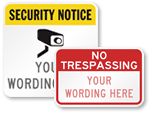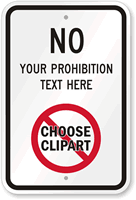Data sharing could make international travel difficult
What you say online can hurt your chances of entering a country you plan to visit. Many countries are making it tougher for people to cross their borders, and thanks to personal databases flowing freely between countries, they are having an easier time doing so.
“As more data is being amassed, it is being moved more quickly and easily between government agencies and immigration authorities,” says Suzanne Nossel, executive director of the PEN American Center, “so there can be more of a chance of something popping up.”

Traveling to another country? Keep your online posts in check. From nathaninsandiego.
Data sharing between countries rising
The U.S. and Canada share data on criminals, so it’s easy for both to enforce the law. Both countries might not allow those with prior arrests to enter their borders.
The two are set to go a step further. Beginning this fall, the U.S. and Canada will also share the personal information of applicants for visas. Privacy could be a key concern.
Currently, 366 people per day are refused entry at the U.S. border. As of now, the two countries share information related to 3,000 people a year at borders. When this figure goes up, more people are likely to be refused entry.
Public figures scrutinized
Celebrities are particularly vulnerable. Celebrity-chef Nigella Lawson was not allowed to travel to the U.S. after she admitted in court that she had taken cocaine. “It could be because she is unlucky enough to be famous and her admission of drug use made the newspapers,” says lawyer Susan McFadden.
Even politicians are turned away from borders. Toronto Mayor Rob Ford boarded a plane to Chicago, but “after discussion with U.S. Customs and Border Protection he withdrew his request to enter the USA and departed,” says Roy Norton, Consul General at Canadian Consulate General at Chicago. Ford had earlier admitted to using cocaine.
Political activists are vulnerable
Political activists are also on the immigration radar, courtesy of the ease of investigating them on Facebook, Google, and Twitter.
Writer Ilija Trojanow, a critic of the National Surveillance Agency, was not allowed to board a plane to the U.S. for a conference. Only after PEN interceded on his behalf and sent a letter to the U.S. State and Homeland Security Departments asking for a review of Trojanow’s case was he allowed entry.
Cell phones are not off-limits
Immigration officials have even read cell phone messages and barred people from entering the border in Canada.
Jake Owen, an American musician, was set to play for free in a café in Canada. However, an officer found a message on Owen’s phone implying that he would get paid by a friend. “We weren’t getting paid — there was no money being exchanged in Canada,” says Owen. He was still sent back to the U.S.
“Normally, if you’re potentially taking a job away from a Canadian, you’d need a work permit,” says Nancy Caron, Citizens & Immigration Canada spokesperson. “If you’re a big international performer, then you’re not taking a job away from someone.”
Other countries also have stringent immigration policies. “For Brazil, if you’re going short-term but you’re doing hands-on work — even if it’s for a company in the U.S. — there’s a separate visa,” says Aaron Caplan of Perry International, a visa facilitation firm. “And in China, we have heard they’re really scrutinizing what people are doing there, to make sure anyone who is actually working is getting a work visa.”
Category: News, Trespassing














